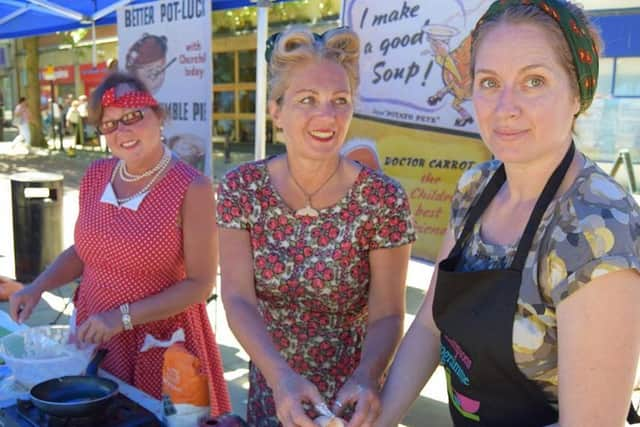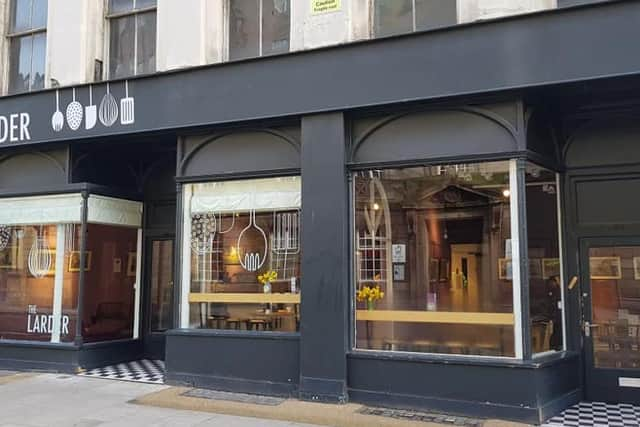The Larder: the café helping tackle food poverty in Preston


The Larder is committed to doing things differently, promoting food that’s healthy, local, seasonal, and waste-free.
Comprising of a food academy and a bustling catering business which is connected to a strong network of local farms, the enterprise also practises what it has been preaching, having been running a charming café extolling the virtues of sustainable food since February last year.
Advertisement
Hide AdAdvertisement
Hide Ad“We wanted something self-sustaining, so the café runs as a business which has to pay for itself,” said 54-year-old Kay Johnson, Founder and Director of The Larder (Lancashire and Region Dietary Education Resource Café). “We support local farmers and producers and buy as much of our produce as we can from individuals - we don’t have one single supplier.


“We want people to be able to buy locally more easily, so we’re very much centred around supporting the local community and encouraging others to do the same,” added Kay, who is from Penwortham. “Ingredients are bought fresh and everything is cooked from scratch.”
The social enterprise, established five years ago, has thrown its support behind the movement for sustainable food in Lancashire, promoting affordable and healthier food, tackling food poverty, building community food knowledge, promoting a diverse food economy, transforming catering and food procurement, and reducing the ecological footprint of the food system.
And those principles are reflected in The Larder Café, too.
“There’s a lot of pride in the fact that we operate along the same core principles which we extol on the social enterprise side of things,” said Kay, explaining that when they do outside catering, they never use disposable cutlery and plates and have a menu designed to produce as little waste as possible. “We try to stick to a few tenets: minimal waste and recognising the environmental agenda.


Advertisement
Hide AdAdvertisement
Hide Ad“We’re trying to educate people about food and where it comes from whilst tackling issues around food poverty, because there’s a lot of it in Preston,” she added. “A lot of the problems people face are often about not having access to good food, facilities, or skills, so we’re trying to make sure people who want to learn about food can do so.”
A relatively new concept in Preston, Kay says that getting the café up and running has been ‘a bit of an uphill struggle’, but that things are looking good. “The café has been great,” she said. “We have a lovely group of regulars and quite a few groups who meet here - a knitting group, autism initiatives - so it’s become a a friendly, supportive, and welcoming community space and that’s lovely.”
Employing six members of staff, the café also became the first Refill café in Preston as part of the national Refill campaign.
With over seven billion plastic water bottles used each year in the UK despite the country boasting some of the highest-quality tap water in the world, the campaign aims to reduce single-use plastic, offering free tap water refills to anyone who comes in with a reusable bottle or flask.
Advertisement
Hide AdAdvertisement
Hide Ad“It’s great to work with like-minded people; we’re a team and we all support each other,” said Kay. “People that join us tend to do so because of the nature of the work that we do; it’s not a normal job: mostly people do it because they’ve got a passion for food and community.
“Our principles are so important: showing that we can stick to them means we can make it a model which others can replicate.”
Sources
www.endchildpoverty.org.uk/poverty-in-your-area-2019/
https://assets.publishing.service.gov.uk/government/uploads/system/uploads/attachment_data/file/741555/Fast_Food_map.pdf